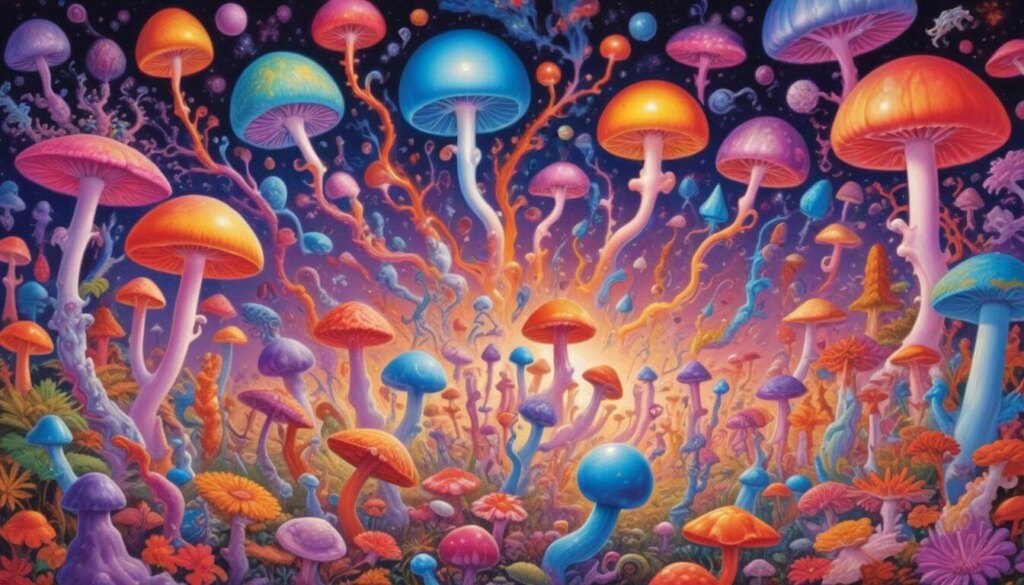Among the various substances found to impact the mind in different ways, some psychedelics work to affect mood and cognitive functions. They are widely used all over the world, but there are also some rules and regulations associated with their usage. So, where are psychedelic mushrooms legal? Let’s learn.
Magic Mushrooms in The United States: A Mosaic of Legislation
The whole landscape surrounding psychedelics has changed a lot in the last few years in the U.S., moving from the borders of taboo to the sphere of scientific inquiry and law-making deliberate.
The core of this change is the reassessment of the substances such as magic mushrooms which were earlier stigmatized now beginning to be honored for their therapeutic value. This ever-changing perception of psychedelic medicine has given birth to a wide range of actors that are startups, biotech organizations, and nonprofit entities, each of them playing a fundamental role in shaping the future of psychedelic treatments.
The most prominent actors in this movement are undoubtedly organizations like Atai Life Sciences and Compass Pathways, which are both hailed as the leaders in the field of psychedelic studies and therapy.
Atai Life Sciences, with Christian Angermayer as its founder, has become one of the most important investors in psychedelic-based startups. Its collection of resources, indeed, is used to support exciting research and development initiatives. In comparison to Compass Pathways, the latter is distinguished for its path-breaking research in producing psilocybin-assisted therapy for depression treatment-resistant therapies and this has attracted a lot of attention for its solid and rigorous clinical trials and evidence-based medicine.
Notable investors such as Peter Thiel who have recognized the possibility of cutting-edge technology that can alter the course of mental health treatment have been continuous supporters of this area. The endorsement by Thiel of companies such as Compass Pathways shows the growing mainstream acceptance of psychedelic therapy as a valid option that can effectively address otherwise under-addressed medical needs.
Nonprofit organizations, which also are effective actors outside the corporate realm, have been important in the development of psychedelic research.
Organizations like the Multidisciplinary Association for Psychedelic Studies (MAPS) are key lines of weapons that have been employed to secure policy change and enhance education regarding psychedelic-assisted therapies. Among the various advocacy organizations, some push for research and community outreach to change the approach for psychedelics into a more informed and inclusive one.
Oregon and Colorado: Pioneers in Psilocybin Legislation
Both Oregon and Colorado are the leading states that have blazed a trail in the frontiers of psychedelic laws, spearheading a fresh decade in the creation and exploration of new mental health treatment.
Both Oregon and Colorado are starting different conversations about psilocybin, which is the active substance found in magic mushrooms. Oregon pioneered psilocybin legalization for adults’ purposes under supervision as a final stage in the drug policy and treatment of mental problems.
In November 2020, Measure 109 became a success after gaining the support of voters, setting a system for the therapeutic use of psilocybin in licensed facilities, and with trained facilitators who guide people through psychedelic sessions.
On the contrary, Colorado has used an approach that has incremented step-by-step towards addressing psilocybin laws, with the city of Denver pioneering the movement. May 2019 is when Denver, the “first city” in the U.S., reduced criminalizing psilocybin mushrooms to the minimum in terms of police enforcement of psilocybin-related crimes.
Therefore, Coloradoan voters had the chance to support Proposition 109 in November 2020 which, through legalizing mushroom consumption among 21-year-old or older people, ended the illegal use of all psilocybin mushrooms. The act stipulates that psilocybin shall be governed by a regulatory system that prioritizes public safety and health while at the same time acknowledging the contribution of the substance to people’s well-being.
Oregon and Colorado’s groundbreaking work on psilocybin laws will lead to a more enlightened and enlightened approach to mental health care by adopting evidence-based practices, prioritizing patient well-being, and combating outdated stigma. This marks an important milestone towards a more compassionate approach.
International Perspectives: Magic Mushrooms Beyond the USA
The national legislation on the use of magic mushrooms around the world is quite diverse. While the attitudes towards drugs as well as legal frameworks and the policy vary from country to country, many of them favor drug legalization.
Netherlands
In the Netherlands, Southern freedom has been always associated with the Magic mushrooms in connection with the Dutch Magic mushroom history. In contrast with psilocybin-laced mushrooms, which were criminalized in 2008, certain forms of truffles, which are known for their psilocybin-like characteristics but which contain less of the compound, are still available for purchase. Such truffles are sold in smart shops under tight regulations, gauging how many people receive such an experience within a controlled environment to prevent abuse.
Canada
Canada has come a long way in revisiting the psychedelic-facilitated death where the legal status of psilocybin is concerned, especially in the end of life care. For terminally ill patients only, Health Canada became an investigating authority in 2020 for psilocybin-assisted therapy, accepting the huge possibilities of magic mushroom trips becoming self-aware, and alleviating suffering from death anxiety while improving the patient’s quality of life. This approach has become more and more popular due to the realization of many therapeutic properties of psilocybin.
Portugal
In Portugal, the most questioned movement has been decriminalization, and after that begins the discussion about the wide degree of consequences of drug policy reform. The country of Portugal decriminalizes magic mushrooms while the same substance remains forbidden but that approach has harm reduction, treatment, and societal integration as top priorities, thus desisting from putting someone behind bars.
Australia
Australia has a research-led approach to psychedelics, with growing interest in the therapeutic potential of substances such as psilocybin. Clinical trials are currently underway to examine the effectiveness of psilocybin-assisted therapy for conditions such as depression, anxiety, and PTSD.
New research, changing cultural attitudes, and growing awareness of the limitations of traditional psychiatric treatments are creating momentum around the world to re-evaluate the legal status of magic mushrooms and psychedelics. International efforts to study and potentially legalize psychedelics for therapeutic purposes highlight a shared commitment to evidence-based policy and the pursuit of innovative solutions to mental health challenges.

The Road Ahead: Legal and Ethical Considerations
While the drive both from the experts and non-experts to do the reevaluation of magic mushrooms and psychedelics continues to be in high gear, the era ahead is marked with legal and ethics scenarios that need to be navigated with all care. However, leaving the therapeutically powerful compounds behind, complications such as constraints on legality, safety, equal access, and cultural representation arise.
In the first place, one of the most important legal concerns is regulatory matters regarding the manufacturing, sales, and consumption of magic mushrooms and psychedelic substances. Initiation of banning or decriminalization of psychedelics is the responsibility of the authorities who should provide strict regulation mechanisms to secure people from harmful effects, prevent abuse, and eliminate potential risks.
A mention is made of the ethical dilemmas and informed consent, equity of access, and cultural consideration. Psychedelic therapy often involves an altered state, and therefore causes consent to be questionable, and necessitates a role for therapists who would guide the whole experience and perhaps even participate in it. Facilitating easy and accurate information, thorough education programs, and psychiatric practices that are given a cultural twist is critical in upholding ethical standards in psychedelic therapy.
A New Era for Psychedelics?
In this new psychedelic era, we are on the threshold of a deep shift in consciousness, a renaissance of the human spirit that encourages us to reclaim our innate capacity to heal, grow, and transcend.
As you embark on this journey of discovery and self-discovery, be guided by wisdom, compassion, and a deep respect for the mysteries of the psychedelic experience.
But perhaps most importantly, the emergence of psychedelics as a legitimate field of scientific research and therapeutic practice heralds profound changes in our understanding of consciousness and the mind-body connection.
By challenging dualistic paradigms that separate mind and body, self and other, psychedelics invite us to explore the depths of our inner world and the interconnectedness of all things. In doing so, they promise not only healing and transformation, but also the possibility of a more holistic and compassionate approach to mental health care.





